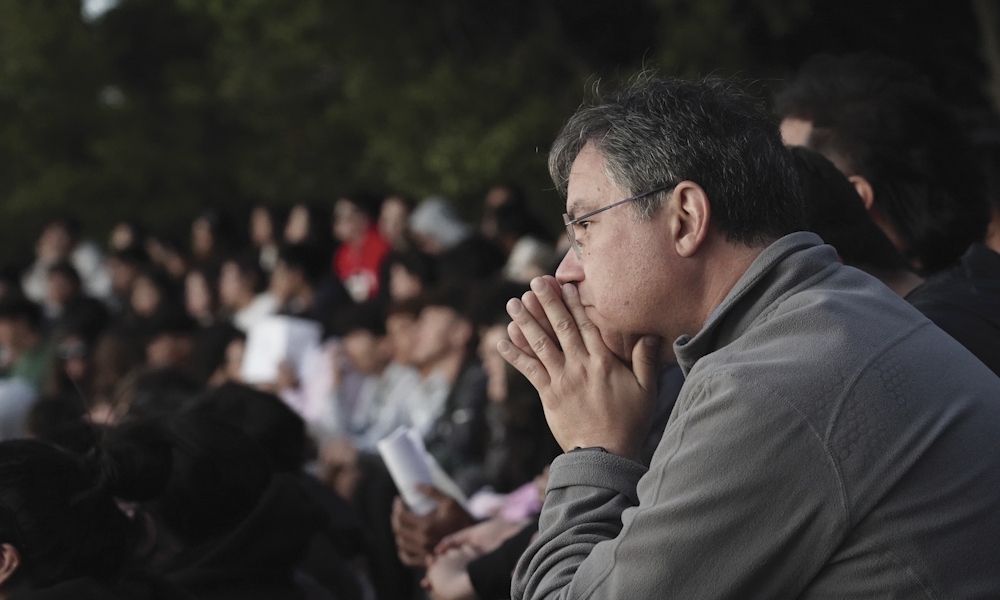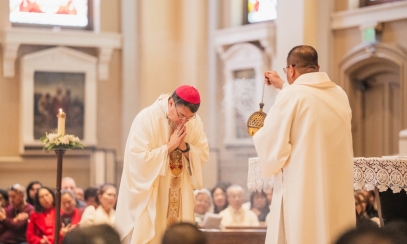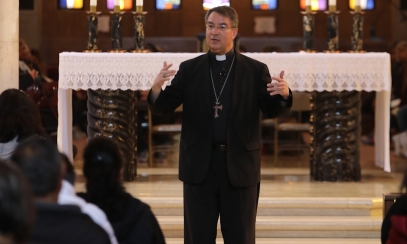
Prayer is Essential for Spiritual Renewal
Early on as I was conducting research with other dioceses who had done pastoral planning and undergone significant changes in their ministry structure, I was on a call with the bishop whom I knew well and respected deeply. This bishop’s diocese was much farther along in their own pastoral planning process than we were. As we discussed their process, he said something that has stayed with me. He said, “Oscar, you can create the perfect plan, and make all the right decisions, and have the right people in the right places, and yet, if the core of your activity in the diocese is not spiritual renewal, your plan will fail.” He didn’t say it might fail, or it will have fewer chances of success. He said, it will fail. Categorically. This obviously caught my attention. That bishop had much more experience than I, and his recent experience of planning for change, conducting the change, and managing it, he confessed, was not easy. Yet, he believed, as difficult as it was, it was necessary, and where he believed God to be summoning his diocese.
Based in part on this conversation, I continue to repeat something of which I have become convinced: spiritual renewal must be at the center of our pastoral plan and it must be the final goal.
What does spiritual renewal mean?
Early on in our own planning process, I was asked what I meant by “spiritual renewal.” Good question: it’s important to be on the same page in our terminology. I see spiritual renewal as the opening of our hearts and minds to God on a regular basis so that the Holy Spirit can work in our lives. How do we know when the Holy Spirit is working in our lives? As we can tell a tree by its fruit, so we can see the Holy Spirit at work in individuals and communities when we perceive the fruits of the Holy Spirit. When we perceive charity, joy, peace, patience, kindness, goodness, generosity, gentleness, faithfulness, modesty, self-control, chastity—these are some of the indicators that the Holy Spirit is at work in an individual or in a community (cf. CCC 1832; Gal 5:22-23).
Opening our hearts to the heart of Christ
The opening of our hearts and minds to God is at the heart of prayer – an opening of our heart to the heart of Christ. And allowing his heart to mold and shape ours. There are multiple forms of prayer: formal, spontaneous, liturgical, silent, meditative, etc. The important thing in any kind of prayer is that we open our heart to the heart of Christ. It is in this encounter of hearts that spiritual renewal begins and continues. It bears fruits in our personal lives and in our communal and ecclesial lives.
Useful Tips for Beginning and Maintaining a Life of Prayer
Place: It is helpful to have a place that we identify with prayer. It could be our bedroom, our backyard, our living room, and even a particular chair in which to sit. Some go to weekday Masses, in addition to Sunday, and so the church or chapel becomes a regular identification with prayer. Indeed that is what churches and chapels are specifically for: worship and prayer to God.
Time: as we are creatures of habit, it is helpful, as well, to have a regular time for prayer. If we’re up early in the morning, that may be a good, quiet time to do so. When I was a teenager in high school, I often had tons of homework to do after basketball practice. So, I would go home, take a short nap, while all the house activity was going on. Then, I would get up and have dinner and then study into the late night, when the house had gone quiet. I remember taking study breaks late at night, standing before a portrait of my family and praying for my family. Others pray the rosary on the way to work. Obviously, there are many possibilities and opportunities in our life for prayer.
Prayer Partners: some people enjoy being part of a prayer group, either at the parish or in someone’s home. Many years ago, my mother had a prayer group with women who gathered every Friday morning at our house, while the kids were at school. If your spouse is amenable, I encourage spouses to pray together, maybe reading the Gospel of the day, observing some brief silence, then offering spontaneous petitions, and finally closing with the Our Father. Some families pray the rosary together.
Perhaps as a meditation in our prayer, we might reflect on whether and to what extent each of the fruits of the Spirit is present in our lives? In the life of our parish or community? To the extent that they might not be present, let us earnestly ask them of God. “Ask, and you shall receive” (Lk. 11:9).
Bishop Oscar Cantu




